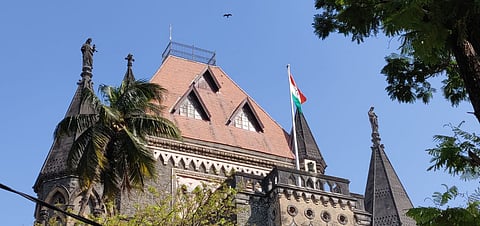

THE Bombay High court, on Tuesday, commuted the death sentence awarded to sisters Renuka Shinde and Seema Gavit, on the ground of inexplicable delay on the part of the state in processing their mercy pleas.
The sisters were convicted by Sessions Judge on June 28, 2001, on the charges of kidnapping 13 children, attempting to kidnap one more child and committing murders of nine of them from 1990 to 1996. Both the High Court and the Supreme Court dismissed their appeals and upheld their death sentences. The duo filed a mercy petition to the Governor of Maharashtra seeking to invoke the power of pardon under Article 161 of the Constitution. The Governor rejected it in 2013.
In 2006, the application to the President to invoke the power of pardon under Article 72 of the constitution was filed by the petitioners. The mercy petitions were rejected by the President in 2014, without explaining the delay of seven years, ten months and 15 days to dispose of their petitions.
The petitioners approached the Bombay High Court on August 19, 2014, the day the petitioners were to be executed, seeking judicial review of the President's decision and seeking commutation of the death penalty to life imprisonment. The petitioners argued that due to the delay in disposal of the mercy petitions, their Constitutional right of Article 21 of the Constitution is infringed, and the death sentence be commuted to that of life imprisonment.
The High Court referred to the Supreme Court decision in Shatrughan Chauhan and Another Versus Union of India and Other in which the court held that not only the death sentence should be passed lawfully, but the execution of the sentence must also be in consonance with the constitutional mandate and not in violation of the constitutional principles. The court also held that when the delay in disposal of mercy petition is unreasonable, unexplained and exorbitant, the court must step in.
The High Court also referred to the Ministry of Home Affairs' instructions regarding the procedure to be observed by the States for dealing with the petitions for mercy on behalf of convicts under sentence to death and to the Maharashtra Prisons (Prisoners Sentenced to Death) Rules of 1971. The court held that the state government was reluctant to adhere to the rules and procedures which are in place.
The court also chastised the state for an "unexplained, inordinate, and long delay," and said that the mercy petitions were not decided for over seven years and ten months due to the officers' nonchalant attitude. The court said,
"To summarize, the position of law that unexplained and gross delay in disposal of mercy petitions may result in commuting the death sentence was already holding the field when the mercy petitions by and on behalf of the petitioners were made. Despite this legal position, wholly due to the casual approach of the officers of the Respondent- State, the mercy petitions were not decided for seven years, ten months and 15 days. Though the procedure for deciding the mercy petitions mandates speed and expediency, the State machinery showed indifference and laxity at each stage of processing the files".
The court added that in the time of modern electronic facilities for communication such as E-mails, courier services, the 'negligence and apathy' on the part of the State, leads to delay in the movement of the files from one place to another within the State, sometimes a delay of a year.
The court also pulled up the state for not circulating the petition after making a statement that the death sentence will not be executed. The court noted:
"The petition was not circulated by the State Government since the year 2016 after making a statement that the death sentence will not be executed. It is also pertinent to note that the petition was circulated before us in October 2021 at the instance of the petitioners and not by the State Government.
If the State Government was serious about executing the death sentence as being argued before us, it should have ensured that it does not create a situation that attracts a legal position leading to commuting the death sentence".
The court held that Article 21 of the Constitution of India extends to the stage of execution of the sentence and that the prolonged delay in execution of sentence of death has a dehumanizing effect.
The court, however, denied the petitioners' plea that they be ordered to be released forthwith after serving 25 years in prison. The court noted that the petitioners' crimes were "heinous," and that their depravity in murdering innocent children was "beyond words to condemn." The court observed that the power of remission of sentences can only be granted by the state.
(Rajesh Kumar is an intern with The Leaflet. He is a first-year student with the National Law University, Delhi)